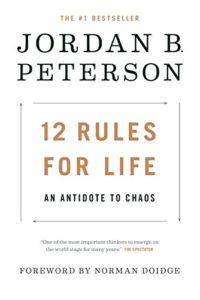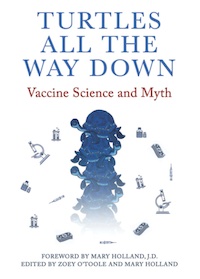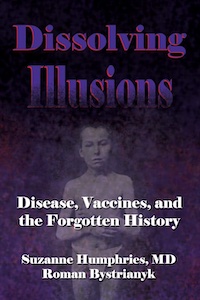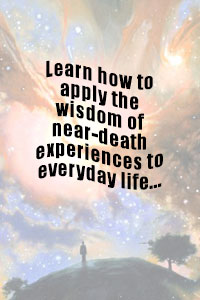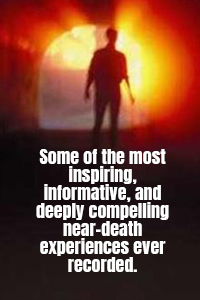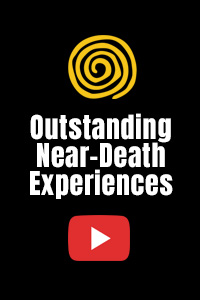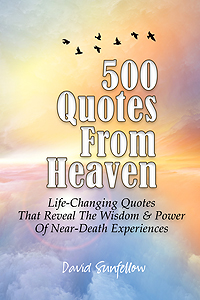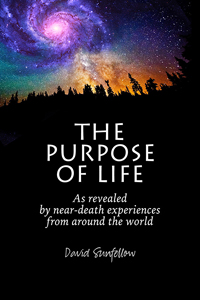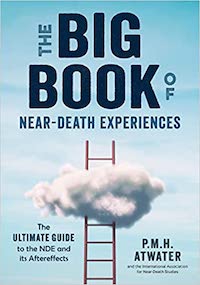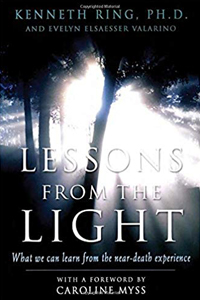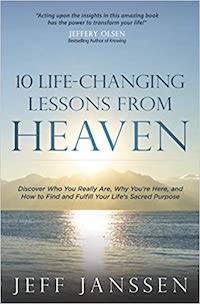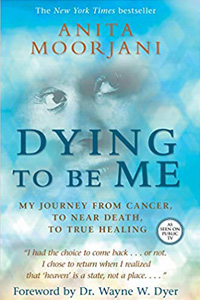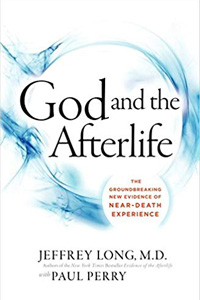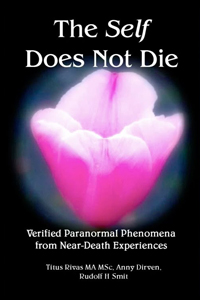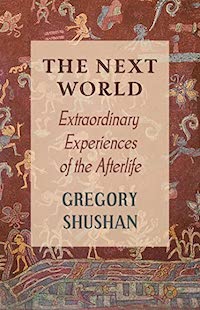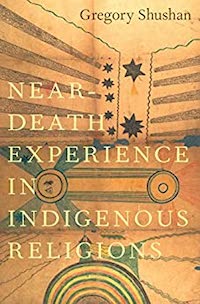……………
Recent News, Articles & Videos:
• Jordan Peterson: Why I Am No Longer A Tenured Professor At The University Of Toronto (National Post – 01/19/22)
• Open The Damn Country Back Up, Before Canadians Wreck Something We Can’t Fix
• Jordan Peterson: Why I (stupidly (?)) agreed to an interview request from the Sunday Times
• Mikhaila Peterson’s Response to The Times Article (YouTube video)
• Times Magazine: Jordan Peterson on his depression, drug dependency and Russian rehab hell
……………
Jordan Peterson Announces Peterson Academy: “Up Yours Woke Moralists, We’ll See Who Cancels Who!”
……………
Jordan Peterson On Being Banned From Twitter
……………
Jordan Peterson: How To Become The Person You’ve Always Wanted To Be | E113
Related Article:
Open The Damn Country Back Up, Before Canadians Wreck Something We Can’t Fix
By Jordan Peterson
National Post
January 10, 2022
……………
Jordan Peterson – The Sad Truth I’ve Learned About COVID Policy
Related Article:
Needle Points
Why So Many Are Hesitant To Get The Covid Vaccines, And What We Can Do About It
BY Norman Doidge
Tablet Magazine
October 27, 2021
……………
A Wing and a Prayer
……………
Leaving the Cult of Wokeness | Africa Brooke – MP Podcast #120
……………
The Jordan B. Peterson Podcast – Season 4 Episode 4: Matt Ridley: Rational Optimism
Excerpts:
“The typical middle class person in North America or Europe, and increasingly, anywhere in the world, is wealthier, by almost any measure, than a billionaire was in 1920.”
…
“The evidence, as far as I can tell, is clear: as soon as you make people rich enough so that they are not living hand-to-mouth, then they start to become concerned with environmental degradation. So the biggest contributor to pollution — you could make a case, a strong case — that the biggest contributor to pollution isn’t wealth, but poverty. And if you raise people out of poverty, then they start to manage their environments properly because they can afford to look at the long run. So you would think that for the radical types that are hyper concerned according to their own self description with poverty and oppression, as well as environmental degradation, that they would look at the facts and say, ‘Oh my God, we can have a cake and eat it too!’ The faster we make people rich, the better off the planet is going to be.”
…
“There is a huge population of young, and not-so-young people, who are metaphorically starving, psychologically starving for a positive, but believable story. We could decry the state of modern politics and concern ourselves with the fact that counterproductive economic and social policies might be put in place for all sorts of ideological reasons, but I actually think a much better use of our time is . . . to produce a robust counter narrative that is thoroughly grounded in the facts. We can say forget about the pessimism . . . we can make the assumption that we can have our cake and eat it too. We can eradicate poverty. We can constrain relative inequality to the point where our societies are stable. We can produce a massive increment in environmental quality. And all that’s within our grasp, if that’s what we want, within the next hundred years.”
…………..
Return Home
…………..
The Mikhaila Peterson Podcast #9 – Jordan B. Peterson
…………..
Peterson Family Update – February 2020
…………..
• Martyr For Free Speech: Jordan Peterson: The High Price He Has Paid
• Jordan Peterson’s Year Of ‘Absolute Hell’: Professor Forced To Retreat From Public Life Because Of Addiction
…………..
Jordan Peterson Quotes
“You cannot be protected from the things that frighten you and hurt you, but if you identify with the part of your being that is responsible for transformation, then you are always the equal, or more than the equal of the things that frighten you.”
…
“…don’t be fixing up the economy, 18-year-olds. You don’t know anything about the economy. It’s a massive complex machine beyond anyone’s understanding and you mess with at your peril. So can you even clean up your own room? No. Well you think about that. You should think about that, because if you can’t even clean up your own room, who the hell are you to give advice to the world?”
…
“There are some games you don’t get to play unless you are all in.”
…
“We deserve some respect. You deserve some respect. You are important to other people, as much as to yourself. You have some vital role to play in the unfolding destiny of the world. You are, therefore, morally obliged to take care of yourself. You should take care of, help and be good to yourself the same way you would take care of, help and be good to someone you loved and valued. You may therefore have to conduct yourself habitually in a manner that allows you some respect for your own Being — and fair enough. But every person is deeply flawed. Everyone falls short of the glory of God. If that stark fact meant, however, that we had no responsibility to care, for ourselves as much as others, everyone would be brutally punished all the time. That would not be good. That would make the shortcomings of the world, which can make everyone who thinks honestly question the very propriety of the world, worse in every way. That simply cannot be the proper path forward.”
…
During a Q&A session at the Orpheum in Los Angeles, one of the audience members asked Peterson to address the accusation that he was becoming a cult leader. Peterson observed that “radical individuality” was by its very nature resistant to cultlike behavior. “You can’t have a cult if your message is ‘Get your act together and live your goddamn life,’ ” he said, to a roar of laughter and applause.
…………..
Interesting Articles:
• Cambridge University’s Shameful Treatment of Jordan Peterson
• Jordan Peterson Is On A Crusade To Toughen Up Young Men (Washington Post)
• The Passion of Jordan Peterson (Esquire)
• What’s So Dangerous About Jordan Peterson? (The Chronicle of Higher Education)
• Jordan Peterson, Custodian of the Patriarchy (New York Times)
• I Was Jordan Peterson’s Strongest Supporter. Now I Think He’s Dangerous (The Star)
• The Story Behind Jordan Peterson’s Indigenous Identity (The Walrus)
…………..
…………..
Preview: 12 RULES FOR LIFE
…………..
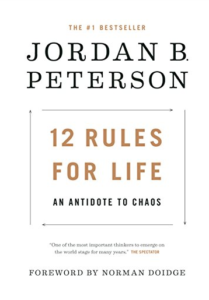
Jordan Peterson: 12 Rules for Life
Jordan Peterson is a Canadian clinical psychologist, cultural critic, and professor of psychology at the University of Toronto. His main areas of study are the psychology of religious and ideological belief, and the assessment and improvement of personality and performance.
From 1993 to 1997, Peterson lived in Arlington, Massachusetts, while teaching and conducting research at Harvard University as an assistant and an associate professor in the psychology department. During his time at Harvard, he studied aggression arising from drug and alcohol abuse, and supervised a number of unconventional thesis proposals. Afterwards, he returned to Canada and took up a post as a professor at the University of Toronto.
In 1999, Routledge published Peterson’s Maps of Meaning: The Architecture of Belief. The book, which took Peterson 13 years to complete, describes a comprehensive theory for how we construct meaning, represented by the mythical process of the exploratory hero, and provides an interpretation of religious and mythical models of reality presented in a way that is compatible with modern scientific understanding of how the brain works. It synthesizes ideas drawn from narratives in mythology, religion, literature and philosophy, as well as research from neuropsychology, in “the classic, old-fashioned tradition of social science.”
Peterson’s primary goal was to examine why individuals, not simply groups, engage in social conflict, and to model the path individuals take that results in atrocities like the Gulag, the Auschwitz concentration camp and the Rwandan genocide. Peterson considers himself a pragmatist, and uses science and neuropsychology to examine and learn from the belief systems of the past and vice versa, but his theory is primarily phenomenological. In the book, he explores the origins of evil, and also posits that an analysis of the world’s religious ideas might allow us to describe our essential morality and eventually develop a universal system of morality.
Harvey Shepard, writing in the Religion column of the Montreal Gazette, stated: “To me, the book reflects its author’s profound moral sense and vast erudition in areas ranging from clinical psychology to scripture and a good deal of personal soul searching. … Peterson’s vision is both fully informed by current scientific and pragmatic methods, and in important ways deeply conservative and traditional.”
In 2004, a 13-part TV series based on his book Maps of Meaning: The Architecture of Belief aired on TVOntario. He has also appeared on that network on shows such as Big Ideas, and as a frequent guest and essayist on The Agenda with Steve Paikin since 2008.
In 2013, Peterson began recording his lectures (“Personality and Its Transformations”, “Maps of Meaning: The Architecture of Belief”) and uploading them to YouTube. His YouTube channel has gathered more than 600,000 subscribers and his videos have received more than 35 million views as of January 2018. He has also appeared on The Joe Rogan Experience, The Gavin McInnes Show, Steven Crowder’s Louder with Crowder, Dave Rubin’s The Rubin Report, Stefan Molyneux’s Freedomain Radio, h3h3Productions’s H3 Podcast, Sam Harris’s Waking Up podcast, Gad Saad’s The Saad Truth series and other online shows. In December 2016, Peterson started his own podcast, The Jordan B. Peterson Podcast, which has 37 episodes as of January 10, 2018, including academic guests such as Camille Paglia, Martin Daly, and James W. Pennebaker, while on his channel he has also interviewed Stephen Hicks, Richard J. Haier, and Jonathan Haidt among others. In January 2017, he hired a production team to film his psychology lectures at the University of Toronto.
Peterson with his colleagues Robert O. Pihl, Daniel Higgins, and Michaela Schippers produced a writing therapy program with series of online writing exercises, titled the Self Authoring Suite. It includes the Past Authoring Program, a guided autobiography; two Present Authoring Programs, which allow the participant to analyze their personality faults and virtues in terms of the Big Five personality model; and the Future Authoring Program, which guides participants through the process of planning their desired futures. The latter program was used with McGill University undergraduates on academic probation to improve their grades, as well since 2011 at Rotterdam School of Management, Erasmus University. The Self Authoring Programs were developed partially from research by James W. Pennebaker at the University of Texas at Austin and Gary Latham at the Rotman School of Management of the University of Toronto. Pennebaker demonstrated that writing about traumatic or uncertain events and situations improved mental and physical health, while Latham demonstrated that personal planning exercises help make people more productive. According to Peterson, more than 10,000 students have used the program as of January 2017, with drop-out rates decreasing by 25% and GPAs rising by 20%.
In May 2017 he started new project, titled “The psychological significance of the Biblical stories”, a series of live theatre lectures in which he analyzes archetypal narratives in Genesis as patterns of behaviour vital for both personal, social and cultural stability.
His upcoming book “12 Rules for Life: An Antidote to Chaos” will be released on January 23rd, 2018. It was released in the UK on January 16th. Dr. Peterson is currently on tour throughout North America, Europe and Australia.
…………..
Jordan Peterson: “There was plenty of motivation to take me out. It just didn’t work” – British GQ
…………..
What’s So Dangerous About Jordan Peterson?
By Tom Bartlett
January 17, 2018
They’re waiting in the cold for Jordan Peterson, hands shoved in jacket pockets, serious books like The Gulag Archipelago and Modern Man in Search of a Soul tucked under arms. The crowd outside the University of Toronto’s Isabel Bader Theatre on a Tuesday evening in November is mostly male and mostly in their 20s. They’ve spent hours watching Peterson on YouTube, where he rails against the enervating evils of postmodernism, dissects the Bible at length, and offers fatherly advice about how to “change the world properly.” They recite his dictums on personal responsibility, like “Clean your room,” “Sort yourself out,” and “Don’t do things that you hate.” They devour the classics he deems must-reads — Nietzsche, Dostoyevsky, Orwell. When asked to describe him, they reach for superlatives: brilliant, breathtaking, wise. When asked to compare him, they turn to historical figures: Plato, Diogenes, Gandhi. They insist he’s changed their lives.
Soon the man himself will arrive and deliver an often dazzling, sometimes puzzling, rarely dull two-hour lecture on the symbolic and psychological underpinnings of the book of Genesis. Afterward he will field knotty questions from the audience on whether originality is really possible, the tension between honor and happiness, and the evolutionary upside of solitude. These questions seem designed to be difficult, as if the audience were engaged in a giant game of Stump the Guru. It’s during such sessions that Peterson is at his improvisational best, sprinkling in ideas from philosophy, fiction, religion, neuroscience, and a disturbing dream his 5-year-old nephew had one time. It’s a hearty intellectual stew ladled up by an intense 55-year-old psychology professor who gives the impression that he’s on the cusp of unraveling the deep secrets of human behavior — and maybe the mystery of God, too, while he’s at it.
You’d never guess from the reverential atmosphere in the 500-seat theater just how polarizing Peterson has become over the past year. Days before, fliers were tacked up around his neighborhood warning the community about the dangerous scholar in their midst, accusing him of “campaigning against the human rights” of minorities and associating with the alt-right. There have been several calls for his ouster from the University of Toronto — where he’s tenured — including a recent open letter to the dean of the faculty of arts and science signed by hundreds, including many of his fellow professors. Friends refuse to comment on him lest they be associated with his image. Critics hesitate, too, for fear that his supporters will unleash their online wrath. A graduate student at another Canadian university was reprimanded for showing a short video clip of Peterson to a group of undergraduates. One of the professors taking her to task likened Peterson to Hitler.
It can be tough to parse the Peterson phenomenon. For one thing, it seems as if there are multiple Petersons, each appealing to, or in some cases alienating, separate audiences. There is the pugnacious Peterson, a clench-jawed crusader against what he sees as an authoritarian movement masquerading as social-justice activism. That Peterson appears on TV, including on Fox & Friends, President Trump’s preferred morning show, arguing that the left is primarily responsible for increased polarization. That Peterson contends that ideologically corrupt humanities and social-science programs should be starved of students and replaced by something like a Great Books curriculum.
There’s also the avuncular Peterson, the one who dispenses self-help lessons aimed at aimless young people, and to that end has written a new book of encouragement and admonition, 12 Rules for Life: An Antidote to Chaos. The book isn’t political, at least not overtly, and it grew out of his hobby of answering personal questions posted by strangers on the internet. That Peterson runs a website on “self-authoring” that promises to help those with a few spare hours and $14.95 discover their true selves.
Then there’s the actual Peterson, a guy who Ping-Pongs between exuberance and exhaustion, a grandfather who is loathed and loved by a public that, until very recently, had almost entirely ignored him. Now he has more than a half-million YouTube subscribers, nearly 300,000 Twitter followers, and several thousand die-hard disciples who send him money, to the tune of $60,000 per month. Even the man with all the answers appears stunned by the outpouring, and at the sudden, surreal turn in his life. “When I wake up in the morning, it takes about half an hour for my current reality to sink in,” he says. “I don’t know what to make of it.”
Figuring out what to make of Jordan Peterson’s rise requires first rewinding a few decades. Peterson grew up in the tiny town of Fairview, Alberta, where the high temperature stays well below freezing in the winter months and where the closest city, Edmonton, is a five-hour drive away. It’s a place where a teenage Peterson and his buddies drank too much, built bonfires, and cruised around the endless countryside.
Peterson attended the University of Alberta, earning degrees in psychology and political science before going on to get his doctorate in clinical psychology at McGill University. A fellow graduate student, Peter Finn, now a professor of psychology at Indiana University at Bloomington, remembers Peterson as quick-witted and confident. “He was an enjoyable person who liked to be different and thought highly of himself,” Finn says. “I thought, Who the hell is he?”
Peterson’s early research examined how alcoholism runs in families. When he wasn’t conducting studies on the genetic predisposition for addictive behavior, he was plugging away on a side project that would become his manifesto: Maps of Meaning: The Architecture of Belief. He worked on that manuscript, he says, three hours a day for 15 years, rewriting it scores of times. It was not the sort of book that a psychological researcher following the well-trod path to academic success would take on. It does not zero in on a phenomenon or stake out unclaimed ground in a subfield. Instead the book is a sweeping attempt at making sense of man’s inhumanity to man, the purpose of existence, and the significance of the divine. Peterson leaps from Wittgenstein to Northrop Frye to Grimm’s Fairy Tales, then on to Hannah Arendt, B.F. Skinner, and Dante. The book is shot through with theories of religion (“God” appears several hundred times in the text) and informed by Carl Jung’s archetypal view of the collective unconscious, an influence that’s still evident in Peterson’s work.
Maps of Meaning offers clues to the strongly held political stances that have turned Peterson into a controversial philosopher-pundit. In college, he writes, he espoused socialism almost by default. He tried to emulate the movement’s leaders, dutifully attending meetings, absorbing their slogans and repeating their arguments. Over time, though, he found that he didn’t respect his fellow activists, who struck him as perpetually aggrieved and suspiciously underemployed. “They had no career, frequently, and no family, no completed education — nothing but ideology,” he writes. He also discovered that he often didn’t believe the things he was enthusiastically spouting. “Despite my verbal facility, I was not real,” he writes. “I found this painful to admit.” He also became obsessed with the looming prospect of nuclear war between the Soviet Union and the United States. He fell into a depression, suffered “apocalyptic dreams” several nights a week, and fought against “vaguely suicidal thoughts.”
Carl Jung rode to the rescue. Peterson read a passage from one of Jung’s essays about the importance of understanding “these fantastic images that rise up so strange and threatening before the mind’s eye.” According to Jung, the way you understand them is by framing your personal struggles in terms of ancient stories, embracing the “power of myth,” as Joseph Campbell, another Jung disciple, put it. That epiphany made the bad dreams go away, and Peterson embarked on what has become a lifelong project of grappling with the strange and threatening images in his and other people’s minds.
He continued writing Maps of Meaning after he was hired as an assistant professor of psychology at Harvard University, using the book-in-progress (at one point titled “The Gods of War”) as a text for his classes. In 1995, Peterson was profiled in The Harvard Crimson, an article that reads like an award introduction. One undergraduate told the newspaper that Peterson was “teaching beyond the level of anyone else,” and that even “philosophy students go to him for advice.” A graduate student from back then, Shelley Carson, who now teaches at Harvard and writes about creativity, recalled that Peterson had “something akin to a cult following” in his Harvard days. “Taking a course from him was like taking psychedelic drugs without the drugs,” Carson says. “I remember students crying on the last day of class because they wouldn’t get to hear him anymore.”
Eventually, in 1999, Maps of Meaning was published — his magnum opus, the central preoccupation of his life to that point — and no one cared.
Or nearly no one. The chairman of the psychology department at Harvard at the time, Sheldon White, was impressed, calling it a “brilliant enlargement of our understanding of human motivation.” A few others chimed in with praise, but the response was mostly crickets. It sold fewer than 500 copies in hardcover. “I don’t think people had any idea what to make of the book, and I still think they don’t,” Peterson says. “No one has attempted to critique it seriously.”
He had considered using Maps of Meaning as the basis for his application for tenure at Harvard. When that moment came, though, he found he wasn’t emotionally up to the task. “My mood at the time wasn’t of sufficient stability to feel that I was in the position to make the strongest case for myself, unfortunately,” he says. He received an offer from the University of Toronto, and he took it. By then he was married with two small kids, and the prospect of steady academic employment was attractive. Peterson moved back to Canada.
In the years since then, he’s become a popular professor at the university. Typical comments on RateMyProfessors.com include “life-changing” and “he blew my mind” and “he is my spirit animal.” He ran a private clinical-psychology practice, consulted for law firms, and developed his self-authoring website, which is based on ideas from psychologists like James Pennebaker and Gary Latham on the benefits of goal-setting and the therapeutic value of writing about emotion. He also offered occasional commentary on public television in Ontario, sometimes while wearing a fedora.
He continued to research topics like religion, creativity, and the effect of personality on political orientation. But he is not widely known as an expert on any of those topics, nor is he considered the pioneer of a game-changing concept. He hasn’t frequently published in top journals. That may be, in part, because he is an old-fashioned generalist, more interested in understanding the connective tissue between seemingly disparate ideas than in tilling a small patch of disciplinary soil. Still, it seemed to some who knew him then that the promising professor who wowed them at Harvard in the 1990s had fallen off the map.
In the video that made Jordan Peterson famous, he can be seen sparring with a handful of transgender students about the use of pronouns. He is nattily attired in a white dress shirt with rolled-up sleeves and dark red suspenders. Several supporters, all of them male, stand behind Peterson, amplifying his points. A transgender student accuses Peterson of being their enemy for refusing to use gender-neutral pronouns. “I don’t believe using your pronouns will do you any good in the long run,” he says. “I believe it’s quite the contrary.” When another student asks what gives him the authority to determine which pronouns he uses when referring to someone else, Peterson spins to face that person.
“Why do I have the authority to determine what I say?” Peterson replies, his voice brimming with outrage, his fingers pressed to his own chest. “What kind of question is that?”
The Video Which Made Jordan Peterson Famous
The video has three-million-plus views and more than 45,000 comments. It was filmed in October 2016 after a free-speech rally on the University of Toronto campus, an event that was prompted by a series of videos Peterson posted on YouTube titled “The Politically Incorrect Professor.” In the first video, he argues against a proposed law in Canada that would make so-called misgendering — that is, using pronouns other than the ones a person prefers — a potential human-rights violation, punishable with a fine (that specific statute, which later passed, does not apply to university employees like Peterson, though a similar provision, passed years earlier in Ontario, does). He also objects in those videos to mandatory bias training for staff members at the university. Peterson considers such laws anathema to free speech and makes the case, as a number of other psychologists have, that measures of implicit bias are based on shaky science.
The university’s student newspaper noticed the videos. That tipped off the rest of the news media, which prompted a pro-Peterson rally where Peterson attempted to speak while activists tried to drown him out with chanting and white noise. There was a second rally, followed by a debate between Peterson and two professors defending the proposed law and the use of gender-neutral pronouns. Transgender students protested that event using the hashtag #NotUpForDebate. On a Canadian news show called The Agenda, Nicholas Matte, a historian who teaches in the Sexual Diversity Studies program at the University of Toronto, accused Peterson of abuse, violence, and hate speech for his refusal to use gender-neutral pronouns. Peterson insisted that he would not waver in his opposition to the law, even if it meant going to jail. “I’m not using the words that other people require me to use, especially if they’re made up by radical left-wing ideologues,” he informed Matte and the television audience. “And that’s that.”
Peterson started appearing on podcasts and YouTube shows like The Rubin Report and Waking Up, hosted by Sam Harris, where the two wrangled fruitlessly over the definition of truth for two hours. Perhaps most important, Peterson appeared on a podcast hosted by Joe Rogan, a comedian and Ultimate Fighting Championship commentator, whose show is often among the top 10 most-downloaded on iTunes. Rogan spoke with Peterson for nearly three hours and declared him one of his favorite guests. He’s had him back twice since, and those podcasts have each been listened to by millions.
After the Rogan endorsement, Peterson’s online following swelled. He had been posting videos on YouTube for years, often of his classroom lectures, which had gained a modest following. But that audience expanded exponentially in the wake of the pronoun controversy. Last spring he started an account on Patreon, which allows users to donate money to support a person, often a musician, cartoonist, or other artist, though it’s become a fund-raising vehicle for activists, too. The first month he received $600, which was enough to help purchase better equipment to film his lectures. But the amount kept growing and, at last count, topped $60,000 per month (Peterson now keeps the amount he’s raising private). Those who give $50 or more get to ask questions in a monthly online Q&A session. Those who give $200 per month get a one-time personal Skype chat with Peterson for 45 minutes. The income from Patreon, along with the new demands on his time, caused him to put his clinical practice on hold indefinitely.
Other YouTubers edit and repackage his clips with titles like “Those 7 Times Jordan Peterson Went Beast Mode” and “Jordan Peterson to Student: You Can’t Force Me to Respect You.” There is an active forum on Reddit devoted to all things Peterson. There is another forum devoted solely to Peterson memes, of which there are many. There is Peterson-inspired fan art, including a painting of him arguing with transgender students and an old-fashioned medicine label for “Dr. Peterson’s Sort Yourself Out Syrup,” which purports to cure, among other ailments, “identity politics” and “bloody postmodernism.”
Some of what Peterson says isn’t discernibly different from the messages of conservative firebrands like Ben Shapiro or the liberal-baiting troublemaker Milo Yiannopoulos, both former Breitbart pundits. Like Shapiro, Peterson argues that the left is transforming the next generation into victims and whiners. Like Yiannopoulos, Peterson argues that the patriarchy is a boogeyman. But when he’s been lumped in with what’s come to be called the alt-right, as happens fairly regularly, Peterson has pushed back, calling it “seriously wrong.” The erstwhile socialist considers himself a classic British liberal, and he has castigated the far right for engaging in the “pathology of racial pride.”
Peterson’s route to notoriety mirrors that of other professors like Nicholas Christakis and Bret Weinstein. In the fall of 2015, Christakis, a sociologist at Yale University, was encircled by students upset about an email his wife had sent questioning the need for Halloween-costume guidelines. Last spring Weinstein, then a biologist at Evergreen State College (he has since resigned), confronted a group of students furious that he had objected to a planned Day of Absence in which white professors and students were encouraged to leave campus. In both cases, those clashes were captured on video and widely shared online. In both cases, the professors were largely lauded as voices of reason, while the students were mostly mocked as overly sensitive and out of control.
Peterson has used his unexpected notoriety to express dissatisfaction with the state of the university in Canada and the United States. He believes that the humanities and the social sciences in particular have become corrupted — a term he employs with relish — by left-wing ideology, and that they are failing to adequately educate students. He lays much of the blame at the feet of the late Jacques Derrida and his disciples for replacing, as he sees it, a search for truth and meaning with grousing about identity and power structures.
His critique is broadly consistent with that of Jonathan Haidt, the New York University psychology professor and founder of Heterodox Academy, an organization whose goal is to increase ideological diversity at universities. Peterson and Haidt met in 1994, when Haidt interviewed for a position at Harvard and Peterson was an assistant professor there. Haidt remembers Peterson as “one of the most memorable professors” he spoke with that day. They didn’t keep in touch, but they met again recently when Haidt appeared on Peterson’s podcast. “Socrates would be aghast at how few of us are willing to stand up for academic freedom if it risks arousing an angry mob,” Haidt wrote via email. “Jordan Peterson is one of the few fearless professors.”
He also has a booster in Camille Paglia. Paglia, a professor of humanities and media at the University of the Arts, and a prominent cultural critic whose views don’t fit neatly in political categories, identifies as transgender, though she has also been skeptical of what she calls the current “transgender wave.” Like Peterson, Paglia condemns postmodernism as a malevolent movement. While she hadn’t heard of him until recently, Paglia regards Peterson as a long-lost scholarly brother and sees a link between Maps of Meaning and the provocative 1990 book that made her reputation, Sexual Personae. “It is truly stunning to me how Prof. Peterson pursued his own totally independent path of scholarship in another discipline and yet how our intellectual paths would eventually converge!” she wrote in an email. Paglia blurbed Peterson’s new book, calling him the most important Canadian intellectual since Marshall McLuhan.
After Peterson’s Biblical lectures, devotees like to meet at a bar called Hemingway’s, an appropriately named venue given his emphasis on the value of masculinity. (Peterson argues for the societal importance of the “masculine spirit” and contends that feminists unjustly stigmatize qualities like competitiveness.) My unscientific sampling of the crowd found that the men over 30 saw Peterson as standing up against a tide of anti-male bias. One mentioned that he became interested in Peterson after hearing him speak with James Damore, the former Google software engineer who wrote a memo complaining about the company’s “ideological echo chamber” and asserting that biological differences between men and women explain, at least in part, the gender gap in the tech industry. Peterson seems to be making a passionate case for what they already felt. A software engineer told me he respected Peterson because he “drew a line in the sand.”
The men in their 20s more often mentioned Peterson’s call to personal responsibility and self-improvement, what Peterson has called the “metaphysical fortification” of the individual. “I watched one of his videos and I realized he wasn’t full of shit,” a graduate student in early-childhood development said. A religious-studies student, who is also a practicing Sikh and wears a turban, confessed that he and his girlfriend broke up over his support for Peterson. A Bitcoin entrepreneur named Tom who was wearing a T-shirt covered with images of Donald Trump’s face (he said he liked the shirt because it “triggered SJWs” — that is, social-justice warriors) told me, “In my opinion, he’s our generation’s philosopher.”
There were female fans, too, though they were clearly outnumbered. One recent Toronto journalism graduate whispered that she had a crush on Peterson. Another woman, Kristen, didn’t want her last name printed because she’s already suffered blowback from online friends over her fondness for him. “I think people misconstrue what he’s about,” she says. His overall message, according to Kristen, is “pick yourself up, bucko” — quoting one of Peterson’s taglines.
His influence, though, runs deeper than cross-stitch-ready phrases. Gad Saad sees Peterson’s appeal in religious terms. Saad, a professor of marketing at Concordia University, has likewise sparked the ire of some on the left with his critiques of feminism and Islam. “Jordan has an apostolic flair,” Saad says. “He represents the irreverent academic who isn’t willing to toe the line, who stands on principle. Most academics are too tepid in trying to tackle these issues.” A former student of Peterson’s at Harvard, Gregg Hurwitz, now a writer of best-selling thrillers, has long drawn inspiration from him. Hurwitz slipped some of Peterson’s self-help quotes into his novel Orphan X, which is slated to become a movie starring Bradley Cooper. Hurwitz thinks Peterson’s knack for extracting life lessons from lofty concepts helps account for his appeal. “It’s this ability to take the evolutionary, archetypal narrative and apply it to cleaning up your room,” he says. “And he’s actually authentic.” Hurwitz remembers how, at Harvard, Peterson was quick to shut down students who used “facile ideological arguments” from either end of the political spectrum. “He would dispatch them readily and was unafraid to do so,” Hurwitz says.
There are plenty of others who see Peterson as a malignant force and argue that he provides intellectual-sounding cover for bigotry and misogyny. But persuading them to state those views on the record is a challenge. One cited “personal and community safety threats” as a reason for not commenting. Another asked that even her refusal to comment be kept off the record. They worry about their names’ merely appearing alongside his — and perhaps with some reason. David Cameron, dean of the faculty of arts and science at Toronto, said he was inundated with hostile emails after he sent two letters to Peterson warning him that failure to use a student’s preferred pronoun “can constitute discrimination” under Ontario law, and also reminding him to engage in “civil, nonviolent interactions at all times.” (Peterson made both letters public and called them “inexcusable.”)
Even friends and former co-authors turned down requests for interviews or simply didn’t respond. A former student and admirer, who asked to speak on background, has mixed feelings about the version of Peterson now on display. “His core psychological ideas really are that good,” he writes in an email. “However, I’m afraid that the more time he spends publicly revealing his ignorance of the history of race- and gender-relations, the less eager I am to be on record saying anything good about him.”
What you can’t help noticing when you walk into Jordan Peterson’s unassuming row house in central Toronto are the paintings. There is Soviet propaganda everywhere, including on the ceiling. He has more than 200 such paintings: Lenin addressing a crowd, a portrait of a Soviet agronomist, Russian soldiers during World War II. In the early 2000s, Peterson began buying these paintings on eBay because the irony of bidding for communist agitprop on the most capitalist marketplace ever devised was too delicious to resist. But he also bought them to remind himself of how glorious utopian visions often descend into unspeakable horror.
To understand Peterson’s worldview, you have to see the connection between his opposition to gender-neutral pronouns and his obsession with the Soviet Union. He believes that the insistence on the use of gender-neutral pronouns is rooted in postmodernism, which he sees as thinly disguised Marxism. The imposition of Marxism led to the state-sponsored slaughter of millions. For Peterson, then, the mandated use of gender-neutral pronouns isn’t just a case of political correctness run amok. It’s much more serious than that. When he refers to the “murderous ideology” of postmodernism, he means it literally.
In person, Peterson is wiry, hyperalert, ready to pounce. His dark hair is graying and closely cropped on the sides. He’s lost the beard he sported in years past, along with a lot of weight — 50 pounds, he says, since he changed his diet and stopped taking antidepressants. When you watch old videos of Peterson’s lectures, you’ll hear the same ideas, often the same anecdotes, but the professor delivering them is a more measured, genial figure. These days Peterson seems like a man possessed. His brow furrows, his eyes narrow. He speaks in rapid-fire, um-less sentences. He doesn’t smile much. Sometimes Peterson seizes his temples with one hand as if squeezing out an especially stubborn thought.
His lectures are largely improvised. He writes out a bare-bones outline, but he’s never sure exactly what he’ll say or how long he’ll talk (90 minutes? Two hours? More?). His audience likes the no-frills urgency, the sense that he’s digging to the heart of impossibly complex conundrums, the feeling that they’re observing a bona fide philosopher sweat out the truth under pressure. His frenetic, freewheeling approach is the antithesis of a rehearsed TED talk. He describes his method as a high-wire act. “It’s always a tossup as to whether I’m going to pull off the lecture, because I’m still wrestling with the material. Because the lecture in the theater is a performance — it’s a theater, for God’s sake,” he says. “What I’m trying to do is to embody the process of thinking deeply on stage.” He pauses for a moment, then amends that last statement: “It’s not that I’m trying to do that. That’s what I’m doing.”
Not long ago, Peterson had his picture taken with a couple of fans who were holding a Pepe banner. One of them was also forming the “OK” sign with his fingers, probably a reference to the “It’s OK to Be White” meme created on 4Chan, one of the more offensive and irreverent corners of the internet. Pepe is a smirking cartoon frog that was originally conceived as an innocent illustration but has been appropriated as a tongue-in-cheek icon by aggressively pro-Trump types.
Peterson thinks pointing to that photo as evidence of his sympathy for white supremacy is silly. “I’ve had my picture taken with twenty-five hundred people in the last year, maybe more,” he says. Peterson, who has written a lot about religious iconography, finds the mythos around Pepe fascinating, noting how Pepe is worshiped by the fictional cult of Kek in the made-up country of Kekistan. “It’s satire,” he says. “A lot of these things are weird jokes.” They’re poking fun, he contends, at the oversensitivity of those who would condemn images of frogs or benign statements about the OK-ness of white people. And Peterson has put his own spin on the joke: In a recent video, he held up a Kermit the Frog puppet with a Hitler mustache as a way of acknowledging the criticism, and also, perhaps, of showing his younger followers he’s down with the latest memes.
Asked whether he worries that his association with these symbols and slogans, which have been employed by a number of avowed white supremacists, could be misunderstood, Peterson waves off the concern. “I know for a fact that I’ve moved far more people into the center,” he says. “People write and say, ‘Look I’ve been really attracted by these far-right ideas, and your lectures helped me figure out why that was a bad idea.’ That also happens with people on the far left.”
He’s also heard the criticism, including from some longtime colleagues, that he fails to couch his language carefully and as a result naïvely wades into fraught conversations about gender and race. “They say, ‘I kind of agree with Jordan, but he could have been a lot nicer about it,’” he says. “It’s an attitude that brought out a rather cynical reaction in me: ‘Oh, yeah, you could have done what I did, but you would have done it better?’ It’s like, go ahead, man! Have at it!”
Peterson did recently back down after proposing a website that would use an algorithm to determine which university course descriptions contained postmodern and Marxist language. His plan, which he announced on a television news show, was to create a list of those courses so that students could avoid them. He reiterated his claim that the humanities and the social sciences have become ruined by postmodernism, and he hoped that this list would help bring down those departments. He saw this as a first step toward starting his own online university founded with the mission of developing character, though the plans for such a grand enterprise remain sketchy. The reaction to his website proposal was not positive. Peterson, after talking with a number of friends who told him that it was a bad idea, decided to scrap the website, at least for now. “The question was, ‘Would it do more harm than good?’ ” he says. “I thought it might add to the polarization.”
On the table in his den is a copy of his new book, 12 Rules for Life. It is, in a sense, a more accessible version of Maps of Meaning. In it you won’t find flowcharts featuring dragons or the full text of a letter he wrote to his father in 1986. Instead it’s an anecdote-driven advice book that encourages readers to “treat yourself like someone you are responsible for helping” and “pursue what is meaningful (not what is expedient).” It would be hard to ferret out anything to protest in these pages. The preorders of 12 Rules already dwarf the total sales to date of Maps of Meaning.
Peterson seems more than a little overwhelmed by what’s happened to him over the past year. He estimates that he’s received 25,000 emails in recent months from fans who want to express what he means to them. At the same time, health problems that have long plagued him, including bouts of debilitating fatigue, have resurfaced. Plus there’s the ever-present anxiety: He is speaking so often now, and what he says is so closely scrutinized by supporters and detractors alike, that he fears one inartfully phrased remark could be used to pull him down from his new perch. “Surfing is the right metaphor,” he says. “It’s like I’m on a very large wave, and that’s, you know, really something, but mostly you drown.”
…………..
The Passion of Jordan Peterson
Excerpt:
During a Q&A session at the Orpheum in Los Angeles, one of the audience members asked Peterson to address the accusation that he was becoming a cult leader. Peterson observed that “radical individuality” was by its very nature resistant to cultlike behavior. “You can’t have a cult if your message is ‘Get your act together and live your goddamn life,’ ” he said, to a roar of laughter and applause.
Afterward, nearly half of the two thousand spectators organized themselves into an orderly queue stretching out the back of the club’s cavernous bar area and around the block. A Random House publicist stood by to guard against attempts to monopolize the author’s time. I watched several hundred people trade a few words with Peterson, some of them bearing gifts. “You are omnipresent in our life,” said the female half of one married couple.
“Thank you for helping me to become a less agreeable person,” said one Asian woman.
“You’ve helped me to grow up,” said a young man.
The ratio of those expressing gratitude for the positive effect Peterson had had on their personal lives to those wanting to talk about the culture wars was roughly twenty to one, a more or less perfect inversion of the impression given by much of the media.
I spoke to a Hispanic man named Joseph. “I was smoking too much weed. I was drinking too much. I hadn’t talked to my family in years. I didn’t think I needed anyone. Now I know that I do,” he said, wiping away tears.
A twenty-six-year-old guy named Jordan received Peterson’s lectures from his sister and his mother. His girlfriend Breanna described the change in his energy and motivation since he discovered Peterson three months before. “We started talking about marriage,” she said.
I asked if Jordan had tried other self-help programs or books. “Yeah, but none has ever made a difference.” I noted that Peterson’s message is a dark one. “That’s why I like it. When he says, ‘Life is suffering,’ that resonates very deeply. You can tell he’s not bullshitting us.”
A young woman I met named Faith was inspired to break up with her boyfriend. “I heard what he was saying about weak men and how women can be drawn into those relationships to — I feel bad saying this, but it’s true—to dominate them. My boyfriend didn’t want responsibility for his life or our relationship. Dr. Peterson helped me to accept that it would be a disservice to myself — and to him — to stay with him.”
I understood at a visceral level the gratitude that his large and growing following felt toward him. Something about the intense earnestness with which he approached ideas and sought to communicate them in his lectures touched me and, in an odd way, shamed me. I had grown facile in the manipulation of words and ideas without feeling in any significant way invested in them. His example gave me permission to begin thinking about what I might become in a world that had lost its bearings, even as I had lost my own, and how I might begin the long work of regeneration. Under different circumstances, I might have gone into a church. And yet I don’t think I could have. I am by nature a skeptic and an unbeliever.
How he set this process in motion I can’t exactly say, just that a few of his phrases lodged deep in my psyche and helped loosen some bricks in the mental walls that had kept me trapped in what felt like a terminal confinement. After I spoke with dozens of his followers, it was clear that his was not a message addressed solely to white men, angry or otherwise, but to those of us—and I can’t think of anyone to whom this doesn’t apply—who needed to hear from a credible voice that though we are fated to die, and to suffer, and fail, and do harm to ourselves, and to others, that a pathway to a nobler life is within reach.
I left the book signing at 1:00 a.m. The following morning, I learned that the last autograph seeker went home with an inscribed copy of 12 Rules at 2:30.
…………..
My Thoughts On Buddha
…………..
JORDAN PETERSON – 12 RULES FOR LIFE
…………..
HOW PSYCHEDELICS REVEALS HOW LITTLE WE KNOW ABOUT ANYTHING – Jordan Peterson | London Real
…………..
MY FIGHT AGAINST DEPRESSION – Jordan Peterson | London Real
…………..
“This is not wide spread knowledge” Jordan Peterson on Soviet History
…………..
Jordan Peterson vs Susan Blackmore • Do we need God to make sense of life?
…………..
Jordan Peterson debate on the gender pay gap, campus protests and postmodernism
…………..
2017/06/15: 12 principles for a 21st century conservatism
…………..
2017 Maps of Meaning 01: Context and Background
…………..
The BEST relationship advice EVER – Jordan Peterson
…………..
I Was Jordan Peterson’s Strongest Supporter. Now I Think He’s Dangerous
By Bernard Schiff
Sunday, May 27, 2018
…………..
Bernard Schiff is professor emeritus of psychology at the University of Toronto and former publisher of The Walrus.
…………..
Several years ago, Jordan Peterson told me he wanted to buy a church. This was long before he became known as “the most influential public intellectual in the Western world,” as he was described in the pages of the New York Times a few months ago. It was before he was fancied to be a truth-telling sage who inspired legions, and the author of one of the bestselling books in the world this year. He was just my colleague and friend.
I assumed that it was for a new home — there was a trend in Toronto of converting religious spaces, vacant because of their dwindling congregations, into stylish lofts — but he corrected me. He wanted to establish a church, he said, in which he would deliver sermons every Sunday.
“(He) spread his influence across the country and around the world through a combination of religious conviction, commanding stage presence and shrewd use of radio, television and advanced communication technologies.”
This could have been written about Jordan Peterson. The language echoes the tens of thousands, perhaps hundreds of thousands of words, that have been devoted to the man — ranging from fawning adoration to critical dismissals — since his rise to public prominence starting in 2016 when he declared he would not comply with a proposed amendment to the Canadian Human Rights Act which was, coincidentally, about the power of words. But that quote is taken from Billy Graham’s obituary that appeared in the Times after the American pastor died in February.
Jordan found his pulpit on YouTube and his congregation on social media. His followers have a Bible — 12 Rules for Life: An Antidote to Chaos — which has sold more than one million copies around the world since it was published in January. He lectures to sold-out crowds, at home and abroad, more like a rock star than a middle-aged academic.
I thought long and hard before writing about Jordan, and I do not do this lightly. He has one of the most agile and creative minds I’ve ever known. He is a powerful orator. He is smart, passionate, engaging and compelling and can be thoughtful and kind.
I was once his strongest supporter.
That all changed with his rise to celebrity. I am alarmed by his now-questionable relationship to truth, intellectual integrity and common decency, which I had not seen before. His output is voluminous and filled with oversimplifications which obscure or misrepresent complex matters in the service of a message which is difficult to pin down. He can be very persuasive, and toys with facts and with people’s emotions. I believe he is a man with a mission. It is less clear what that mission is.
In the end, I am writing this because of his extraordinary rise in visibility, the nature of his growing following and a concern that his ambitions might venture from stardom back to his long-standing interest in politics. I am writing this from a place of sadness and from a sense of responsibility to the public good to tell what I know about who Jordan is, having seen him up close, as a colleague and friend, and having examined up close his political actions at the University of Toronto, allegedly in defence of free speech. When he soared into the stratosphere he became peculiarly unknowable. There is something about the dazzle of the limelight that makes it hard to see him clearly. But people continue to be who they are even in the blinding overexposure of success. I have known Jordan Peterson for 20 years, and people had better know more about who he is.
There is reason to be concerned.
I met Jordan Peterson when he came to the University of Toronto to be interviewed for an assistant professorship in the department of psychology. His CV was impeccable, with terrific references and a pedigree that included a PhD from McGill and a five-year stint at Harvard as an assistant professor.
We did not share research interests but it was clear that his work was solid. My colleagues on the search committee were skeptical — they felt he was too eccentric — but somehow I prevailed. (Several committee members now remind me that they agreed to hire him because they were “tired of hearing me shout over them.”) I pushed for him because he was a divergent thinker, self-educated in the humanities, intellectually flamboyant, bold, energetic and confident, bordering on arrogant. I thought he would bring a new excitement, along with new ideas, to our department.
He joined us in the summer of 1998. Because I liked him, and also because I had put myself on the line for him, I took him under my wing. I made sure he went up for promotion to associate professor the following year, as the hiring committee had promised, and I went to the dean to get him a raise when the department chairperson would not.
When he was renovating his house I invited his family to live with mine. For five months, they occupied the third floor of our large house. We had meals together in the evening and long, colourful conversations. There, away from campus, I saw a man who was devoted to his wife and his children, who were lovely and gentle and for whom I still feel affection. He was attentive and thoughtful, stern and kind, playful and warm. His wife, Tammy, appeared to be the keel, the ballast and the rudder, and Jordan ran the ship. I could not imagine him without her, and indeed I see that she is now with him wherever in the world he goes.
On campus, he was as interesting as I had expected him to be. His research on alcoholism, and then personality, was solid, but his consuming intellectual interests lay elsewhere. He had been an undergraduate in political science in Edmonton, where he had become obsessed with the Cold War. He switched to psychology in order to understand why some people would, as he once told me, destroy everything — their past, their present and their future — because of strong beliefs. That was the subject of his first book, Maps of Meaning, published in 1999, and the topic of his most popular undergraduate course.
He was, however, more eccentric than I had expected. He was a maverick. Even though there was nothing contentious about his research, he objected in principle to having it reviewed by the university research ethics committee, whose purpose is to protect the safety and well-being of experiment subjects.
He requested a meeting with the committee. I was not present but was told that he had questioned the authority and expertise of the committee members, had insisted that he alone was in a position to judge whether his research was ethical and that, in any case, he was fully capable of making such decisions himself. He was impervious to the fact that subjects in psychological research had been, on occasion, subjected to bad experiences, and also to the fact that both the Canadian and United States governments had made these reviews mandatory. What was he doing! I managed to make light of this to myself by attributing it to his unbridled energy and fierce independence, which were, in many other ways, virtues. That was a mistake.
Another thing to which I did not give sufficient concern was his teaching. As the undergraduate chair, I read all teaching reviews. His were, for the most part, excellent and included eyebrow-raising comments such as “This course has changed my life.” One student, however, hated the course because he did not like “delivered truths.” Curious, I attended many of Jordan’s lectures to see for myself.
Remarkably, the 50 students always showed up at 9 a.m. and were held in rapt attention for an hour. Jordan was a captivating lecturer — electric and eclectic — cherry-picking from neuroscience, mythology, psychology, philosophy, the Bible and popular culture. The class loved him. But, as reported by that one astute student, Jordan presented conjecture as statement of fact. I expressed my concern to him about this a number of times, and each time Jordan agreed. He acknowledged the danger of such practices, but then continued to do it again and again, as if he could not control himself.
He was a preacher more than a teacher.
Eccentricities notwithstanding, I didn’t regret having worked to secure his position. His students were exposed to new ideas and were as devoted to him as he was to them. I continued to be one of his strongest supporters at the university and thereafter.
In 2001, three years after Jordan arrived, I took early retirement and left the university. I stayed in touch with Jordan and his family, and while our contacts might have been infrequent, they were always familial and affectionate.
Always intense, it seemed that, over time, Jordan was becoming even more so. He had periods of incredible energy when, in addition to his academic work, he ran a business selling the personality assessment tools that he had developed. He actively collected Soviet, and then Mexican art, on eBay. He maintained a clinical practice. He was preoccupied with alternative health treatments including fighting off the signs of aging as they appear on the skin, and, one time, even shamanic healing practices, where, to my great surprise and distress, he chose to be the shaman himself. And he did all of that with the same great fervour and commitment.
At the same time, his interest in political issues became more apparent. We disagreed about most things, but I don’t ask of my friends that we agree. What was off-putting was his tendency to be categorical about his positions, reminiscent of his lectures where he presented personal theories as absolute truths. I rarely challenged him. He overwhelmed challenges with volumes of information that were hard to process and evaluate. He was more forceful than I, and had a much quicker mind. Also, again evocative of what I saw in the classroom, he sometimes appeared to be in the thrall of his ideas and would not, or could not, constrain himself and self-monitor what he was saying.
That was OK. He was eccentric. There was, however, something about his growing fierceness that unsettled me. Always a man of extremes, it seemed to me that the highs and the lows of his emotional range had increased. But he was hurting no one and my affection and loyalty for him were undiminished.
That all changed, soon enough.
Jordan’s first high-profile public battle, and for many people their introduction to the man, followed his declaration that he would not comply with Bill C-16, an amendment to the Canadian Human Rights Act extending its protections to include gender identity and expression. He would refuse to refer to students using gender neutral pronouns. He then upped the stakes by claiming that, for this transgression, he could be sent to jail.
I have a trans daughter, but that was hardly an issue compared to what I felt was a betrayal of my trust and confidence in him. It was an abuse of the trust that comes with his professorial position, which I had fought for, to have misrepresented gender science by dismissing the evidence that the relationship of gender to biology is not absolute and to have made the claim that he could be jailed when, at worst, he could be fined.
In his defence, Jordan told me if he refused to pay the fine he could go to jail. That is not the same as being jailed for what you say, but it did ennoble him as a would-be martyr in the defence of free speech. He was a true free speech “warrior” who was willing to sacrifice and run roughshod over his students to make a point. He could have spared his students and chosen to sidestep the issue and refer to them by their names. And if this was truly a matter of free speech he could have challenged the Human Rights Act, off-campus and much earlier, by openly using language offensive to any of the already-protected groups on that list.
Perhaps this was not just about free speech.
Not long afterwards the following message was sent from his wife’s email address exhorting recipients to sign a petition opposing Ontario’s Bill 28. That bill proposed changing the language in legislation about families from “mother” and “father” to the gender-neutral “parents.”
“A new bill, introduced in Ontario on September 29th, subjugates the natural family to the transgender agenda. The bill — misleadingly called the ‘All Families Are Equal Act’ — is moving extremely fast. We must ACT NOW to stop this bill from passing into law.”
This is not a free-speech issue so Jordan is wearing a different political hat. And what does a “transgender agenda” have to do with a bill protecting same-sex parents? What is this all about?
Jordan has studied and understands authoritarian demagogic leaders. They know how to attract a following. In an interview with Ethan Klein in an H3 Podcast, Jordan describes how such leaders learn to repeat those things which make the crowd roar, and not repeat those things that do not. The crowd roared the first time Jordan opposed the so-called “transgender agenda.” Perhaps they would roar again, whether it made sense or not.
But why “transgender” in the first place? In that same interview, Jordan cites Carl Jung, who talked about the effectiveness of powerful emotional oratorical skills to tap into the collective unconscious of a people, and into their anger, resentment, fear of chaos and need for order. He talked about how those demagogic leaders led by acting out the dark desires of the mob.
If we have a “collective unconscious” there is a good chance that it would include our primitive assumptions about gender and biology. Transgender people violate those assumptions. There is an historical example of how upset our species gets about gender ambiguity in other species. The female spotted hyena is larger than, and dominant over, the male and has a clitoris so enlarged as to have the external appearance of a penis. In the bestiaries of the Middle Ages they were reviled, described as “neither faithful or pagan,” “brutal thugs,” “sexual deviants” and “not to be trusted.” Sir Walter Raleigh excluded the hyena from Noah’s Ark in his History of the World (written in 1614) because he believed that God had saved only the purely bred. That historical lesson tells us how deeply disturbed many of us might be in response to gender ambiguity in human beings.
Transgender people appear early in human history but in these socially progressive times, which worry Jordan so much, they have become more visible. Consciously or not, Jordan may have understood that transgender people tap into society’s “collective unconscious” and would become a lightning rod for attention loaded with anger and resentment. And it did.
More recently, when questioned about the merits of 12 Rules for Life, Jordan answered that he must be doing something right because of the huge response the book has received. How odd given what he said in that same interview about demagogues and cheering crowds. In an article published in January in the Spectator, Douglas Murray described the atmosphere at one of Jordan’s talks as “ecstatic.”
I have no way of knowing whether Jordan is aware that he is playing out of the same authoritarian demagogue handbook that he himself has described. If he is unaware, then his ironic failure, unwillingness, or inability to see in himself what he attributes to them is very disconcerting.
Following his opposition to Bill C-16, Jordan again sought to establish himself as a “warrior” and attacked identity politics and political correctness as threats to free speech. He characterized them as left-wing conspiracies rooted in a “murderous” ideology — Marxism. Calling Marxism, a respectable political and philosophical tradition, “murderous” conflates it with the perversion of those ideas in Stalinist Russia and elsewhere where they were. That is like calling Christianity a murderous ideology because of the blood that was shed in its name during the Inquisition, the Crusades and the great wars of Europe. That is ridiculous.
In Jordan’s hands, a claim which is merely ridiculous became dangerous. Jordan, our “free speech warrior,” decided to launch a website that listed “postmodern neo-Marxist” professors and “corrupt” academic disciplines, warning students and their parents to avoid them. Those disciplines, postmodern or not, included women’s, ethnic and racial studies. Those “left-wing” professors were trying to “indoctrinate their students into a cult” and, worse, create “anarchical social revolutionaries.” I do think Jordan believes what he says, but it’s not clear from the language he uses whether he is being manipulative and trying to induce fear, or whether he is walking a fine line between concern and paranoia.
His strategy is eerily familiar. In the 1950s a vicious attack on freedom of speech and thought occurred in the United States at the hands of Sen. Joseph McCarthy and the House Un-American Activities Committee. People suspected of having left-wing, “Communist” leanings were blacklisted and silenced. It was a frightening period of lost jobs, broken lives and betrayal. Ironically, around this time the Stasi were doing the same to people in East Berlin who were disloyal to that very same “murderous” ideology.
Jordan has a complex relationship to freedom of speech. He wants to effectively silence those left-wing professors by keeping students away from their courses because the students may one day become “anarchical social revolutionaries” who may bring upon us disruption and violence. At the same time he was advocating cutting funds to universities that did not protect free speech on their campuses. He defended the rights of “alt right” voices to speak at universities even though their presence has given rise to disruption and violence. For Jordan, it appears, not all speech is equal, and not all disruption and violence are equal, either.
If Jordan is not a true free speech warrior, then what is he? The email sent through his wife’s account described Bill 28, the parenting bill, as part of the “transgender agenda” and claimed it was “misleadingly” called “All Families are Equal.” Misleading? What same-sex families and transgender people have in common is their upset of the social order. In Maps of Meaning, Jordan’s first book, he is exercised by the breakdown of the social order and the chaos that he believes would result. Jordan is fighting to maintain the status quo to keep chaos at bay, or so he believes. He is not a free speech warrior. He is a social order warrior.
In the end, Jordan postponed his plan to blacklist courses after many of his colleagues signed a petition objecting to it. He said it was too polarizing. Curiously, that had never stopped him before. He appears to thrive on polarization. I have no idea why he did that.
I have been asked by some if I regret my role in bringing Jordan to the University of Toronto. I did not for many years, but I do now.
He has done disservice to the professoriate. He cheapens the intellectual life with self-serving misrepresentations of important ideas and scientific findings. He has also done disservice to the institutions which have supported him. He plays to “victimhood” but also plays the victim.
When he caused a stir objecting to gender neutral pronouns, he thanked his YouTube followers who had supported his work financially, claiming he might need that money because he could lose his job. That resulted in a significant increase in monthly donations. There was no reason to think he would lose his job. He was on a sabbatical, and had not even been in the classroom. The university sent him a letter asking him to stop what he was doing because he was creating an environment which would make teaching difficult, but there was no intimation that he would be fired. I saw that letter. Jordan may have, however, welcomed being fired, which would have made him a martyr in the battle for free speech. He certainly presented himself as prepared to do that. A true warrior, of whatever.
Later, when his research grant was turned down by the Social Sciences and Humanities Research Council of Canada, Jordan told the world he was being punished for his political activities. There was no such evidence. The review system is flawed and this has happened to other academically renowned and respected scholars. (For instance, Prof. Anthony Doob, the former director of the Centre of Criminology at U of T, a member of the Royal Society of Canada and a recipient of the Order of Canada, was funded continuously from the late 1960s until 2006, when he was turned down by the SSHRC. The next year, essentially the same proposal was funded.) These things happen. Jordan, however, took this as an opportunity to rail, once again, against the suppression of free speech by oppressive institutions and into a public relations triumph in the eyes of his followers.
The Rebel, Ezra Levant’s far-right online publication, raised the funds to replace that grant.
This past March, Pankaj Mishra wrote in The New York Review of Books an informed and thoughtful critique of 12 Rules for Life, provocatively titled “Jordan Peterson and Fascist Mysticism.” Jordan’s immediate response was a flurry of angry, abusive, self-righteous tweets, some in response to Mishra’s questioning Jordan’s induction into an Indigenous tribe by referring to it as a “claim.”
Jordan called Mishra a “sanctimonious prick,” “an arrogant, racist son of a bitch,” “a peddler of nasty, underhanded innuendo,” said “fuck you” and expressed a desire to slap him. (As it turns out Jordan had not been inducted into that tribe, and his publisher removed references to the claim in promotional materials as reported in The Walrus by Robert Jago in “The Story Behind Jordan Peterson’s Indigenous Identity.”)
Jordan is seen here to be emotionally explosive when faced with legitimate criticism, in contrast to his being so self-possessed at other times. He is erratic. One of his colleagues at the University of Toronto, Prof. Will Cunningham, said in a recent Esquire article: “There’s my friend Jordan Peterson, who is this amazingly compassionate person who genuinely wants to help people. And then there’s Twitter Peterson, getting placards demanding he be fired immediately. Even I want to get a placard.”
Jordan exhibits a great range of emotional states, from anger and abusive speech to evangelical fierceness, ministerial solemnity and avuncular charm. It is misleading to come to quick conclusions about who he is, and potentially dangerous if you have seen only the good and thoughtful Jordan, and not seen the bad.
Shortly after Jordan’s rise to notoriety back in 2016, I emailed him to express my upset with his dishonesty and lack of intellectual and social integrity. He called in a conciliatory voice the next morning. I was reiterating my disappointment and upset when he interrupted me, saying more or less the following:
“You don’t understand. I am willing to lose everything, my home, my job etc., because I believe in this.” And then he said, with the intensity he is now famous for, “Bernie. Tammy had a dream, and sometimes her dreams are prophetic. She dreamed that it was five minutes to midnight.”
That was our last conversation. He was playing out the ideas that appeared in his first book. The social order is coming apart. We are on the edge of chaos. He is the prophet, and he would be the martyr. Jordan would be our saviour. I think he believes that.
He may be driven by a great and genuine fear of our impending doom, and a passionate conviction that he can save us from it. He may believe that his ends justify his questionable means, and he may not be aware that he mimics those figures from whom he wants to protect us. But his conviction makes him no less problematic. On the contrary.
“What they do have in common is … that they have the answers and that their instincts are good, that they are smarter than everybody else and can do things by themselves.” This was Madeleine Albright, the former secretary of state in an recent interview with the New York Times referring to the authoritarian leaders discussed in her new book, Fascism: A Warning. It sounds familiar.
Currently, Jordan is the darling of the alt-right. He says he is not one of them, but has accepted their affection with relish. Andrew Scheer, the leader of the federal Conservative party, has declined any further appearances on The Rebel, but Jordan continues to appear.
Jordan is not part of the alt-right. He fits no mould. But he should be concerned about what the “dark desires” of the alt-right might be. He could be, perhaps unwittingly, activating “the dark desires” of that mob.
I was warned by a number of writers, editors and friends that this article would invite backlash, primarily from his young male acolytes, and I was asked to consider whether publishing it was worth it. More than anything, that convinced me it should be published.
I discovered while writing this essay a shocking climate of fear among women writers and academics who would not attach their names to opinions or data which were critical of Jordan. All of Jordan’s critics receive nasty feedback from some of his followers, but women writers have felt personally threatened.
Jordan presents a confusing picture, and it’s often hard to know what he is up to. In one of his YouTube videos, Jordan said that if you are not sure of what or why someone is doing what they are doing, look at the consequences. They could be revealing.
That keeps me up at night.
Given Jordan’s tendency toward grandiosity, it should not be surprising to learn that he is politically ambitious. He would have run for the leadership of the federal Conservative party but was dissuaded by influential friends. He has not, however, lost interest in the political life.
Andrew Scheer, the current leader of that party, echoed this proposal which appeared with Jordan’s photo on the front page of the Toronto Sun: “Free speech Prof says cut University funding by 25 per cent until politically correct cult at schools reined in.” In a Toronto Star profile, Vinay Menon reported that Peterson saw a potential starring role when Patrick Brown stepped down in Ontario: “I thought about running when the PC party blew up here, I thought that’s a catastrophe and maybe I can bring some depth to the leadership race.” Doug Ford won the leadership on March 10. On March 19, Jordan was in the Toronto Sun saying that Premier Kathleen Wynne “is the most dangerous woman in Canada.” There was nothing new in the article, but those words are signature Jordan, the language of fear. On May 8, the day before the campaign began, Ford announced that he would scrap Ontario’s sex-ed curriculum and tie funding of post-secondary schools to free speech. This echoed, once more, Jordan’s call to make protection of free speech a condition in the funding of universities. Is Jordan involved with Ford’s political campaign? I have no idea, but it’s not impossible.
Jordan is a powerful orator. He is smart, compelling and convincing. His messages can be strong and clear, oversimplified as they often are, to be very accessible. He has played havoc with the truth. He has studied demagogues and authoritarians and understands the power of their methods. Fear and danger were their fertile soil. He frightens by invoking murderous bogeymen on the left and warning they are out to destroy the social order, which will bring chaos and destruction.
Jordan’s view of the social order is now well known.
He is a biological and Darwinian determinist. Gender, gender roles, dominance hierarchies, parenthood, all firmly entrenched in our biological heritage and not to be toyed with. Years ago when he was living in my house, he said children are little monkeys trying to clamber up the dominance hierarchy and need to be kept in their place. I thought he was being ironic. Apparently, not.
He is also very much like the classic Social Darwinists who believe that “attempts to reform society through state intervention or other means would … interfere with natural processes; unrestricted competition and defence of the status quo were in accord with biological selection.” (Encylopedia Britannica, 2018.) From the same source: “Social Darwinism declined during the 20th century as an expanded knowledge of biological, social and cultural phenomena undermined, rather than supported, its basic tenets.” Jordan remains stuck in and enthralled by The Call of the Wild.
We should be concerned about his interest in politics. It is clear what kind of country he would want to have or, if he could, lead.
What I am seeing now is a darker, angrier Jordan than the man I knew. In Karen Heller’s recent profile in the Washington Post he is candid about his long history of depression. Depression is an awful illness. It is a cognitive disorder that casts a dark shadow over everything. His view of life, as nasty and brutish, may very well not be an idea, but a description of his experience, which became for him the truth. But this next statement, from Heller’s article, is heartbreaking: “You have an evil heart — like the person next to you,” she quotes him as telling a sold-out crowd. “Kids are not innately good — and neither are you.” This from the loving and attentive father I knew? That makes no sense at all.
It could be his dark view of life, wherever it comes from, that the aggressive group of young men among his followers identify with. They may feel recognized, affirmed, justified and enabled. By validating them he does indeed save them, and little wonder they then fall into line enthusiastically, marching lockstep behind him. That is unnerving. The misogynistic attacks on the British broadcaster Cathy Newman, after she was humiliated and left speechless by Jordan in the infamous “gotcha moment” of their TV interview, were so numerous and vicious that Jordan asked his followers to back off. These devoted followers are notorious for attacking Jordan’s critics, but this was different. It was more persistent and more intense. That was not outrage in defence of their leader who needed none; she was the fallen victim and it was as if they had come in for the final kill. Jordan’s inflammatory understanding of male violence for which “the cure … is enforced monogamy” as reported by Nellie Bowles in the New York Times is shocking. This is upsetting and sad if you are, or were, Jordan’s friend. But it is also frightening.
We would be foolish to not pay close attention and to not take Jordan and his impact seriously. Do I overstate a possible danger? Maybe. I really don’t know. But for historical reasons, silence is not a risk I am willing to take.
“When someone claims to be acting from the highest principles for the good of others, there is no reason to assume that the person’s motives are genuine. People motivated to make things better usually aren’t concerned with changing other people — or if they are they take responsibility for making the same changes to themselves (and first).”
I did not write this, although I might have. It’s taken from 12 Rules for Life. These are Jordan’s words.
I believe that Jordan has not lived up to at least four of his rules.
Rule 7: Pursue what is meaningful (not what is expedient)
Rule 8: Tell the truth — or, at least, don’t lie
Rule 9: Assume that the person you are listening to might know something you don’t
Rule 10: Be precise in your speech
Heller observed that when Jordan slumped, violating Rule 1 (Stand up straight with your shoulders back), his wife cajoled him to correct that. It may be absurd to take that seriously, but the stakes are real, given Jordan’s stated obligation to have changed himself first. He has done a poor job of that.
I knew Jordan when it was possible to know him up close. He was always a complicated man. Even then, it was hard to get a fix on what he was doing. But some things were clear and consistent. In retrospect, I might have seen this coming. I didn’t.
…………..
Links:
• Jordan Peterson Website
• Self-Authoring Website
• Jordan Peterson on Facebook
• Jordan Peterson on Twitter
• Jordan Peterson on YouTube
• Jordan Peterson Quotes
…………..
Related Links:
• Why It’s Important To Know About Shadow Issues And Work On Them
• Near-Death Experiences on the Purpose of Life
• The Formula for Creating Heaven on Earth


